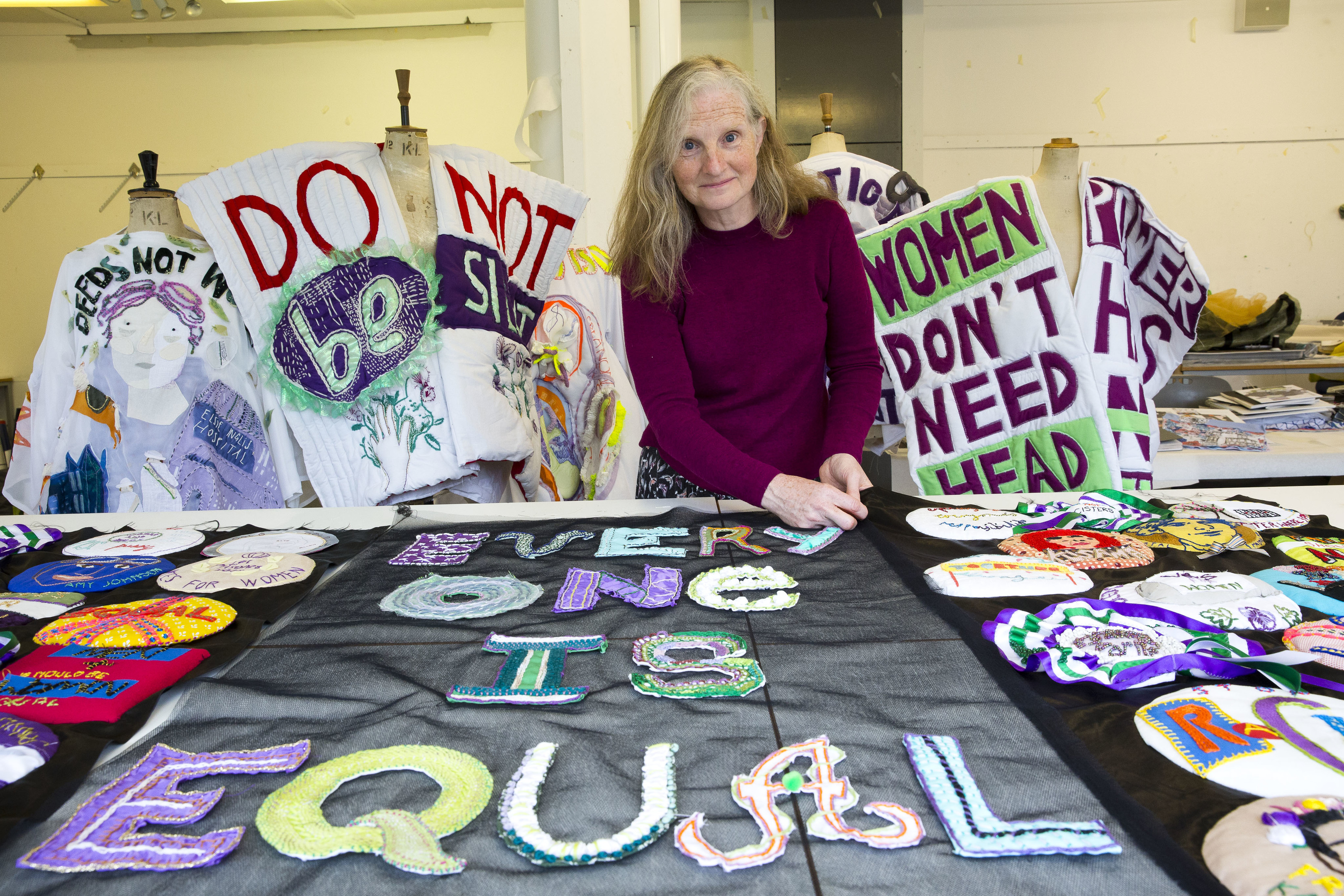
ON Sunday, thousands of marchers dressed in green, white and violet will mark 100 years since women won the vote.
The UK’s four capital cities will be transformed into flowing rivers of colour as thousands of women walk through the streets dressed in the colours.
These are the colours of the suffragettes and the walk, Processions, will celebrate a century since women won the right to vote, as well as asking what it means to be a woman today.
Thousands are expected in Edinburgh for what has been called a mass participation artwork and many will hold banners handcrafted for the event.
Providing guidance on the banners has been Clare Hunter, from Stirling, who has been a community artist and banner maker for more than 30 years.
“Sewing is a way to mark our existence on cloth – patterning our place in the world, voicing our identity, sharing something of ourselves with others and leaving the indelible evidence of our presence in stitches held fast by our touch,” she said.
“Banners are like big proclamations in a crowd, sewn petitions of concern, telling people who they are, where they come from and why they are walking – they provide a message very quickly.
“Suffragettes were accused of being unwomanly when they began to protest, so they deliberately made their banners very feminine. They would be beautiful, using nice fabric and have female imagery.
“To subvert the domestic craft of needlework added poignancy and advocacy to their campaigns.”
As part of Sunday’s Processions events, 100 organisations including Girlguiding, The Scottish Refugee Council and Women in Prison have been commissioned to create banners. Many more are expected from small community groups and individuals.
Clare created a number of points for women to follow when creating banners.
“It’s about getting the message across,” she said.
“It should come from the heart and could champion someone from the community or a personal achievement, it doesn’t have to be serious – humour works well.”
Clare became involved in banner making in 1984, when she was a community artist.
“I was invited to Nottinghamshire to help make banners for the May Day parades. That happened to be the year of the miners’ strikes. I realised it was a wonderful medium that had a great impact publicly,” Clare explained.Clare is writing a book, Threads Of Life, which is a history of sewing and embroidery told through the centuries about the men and women who have made their voices heard, even in the most desperate circumstances, through the medium.
“The Disabled Soldiers’ Embroidery Industry, set up after the First World War, was probably the beginning of art therapy,” she added.
“The repetitive, rhythmic nature of it had a calming influence for soldiers suffering PTSD.”
The book also includes stories from medieval France to the banner makers at Greenham Common in the 1980s, where women set up a peace camp protesting the deployment of nuclear missiles.”
To register for the event, go to processions.co.uk/register
An exhibition charting the role Edinburgh’s women played in the suffrage movement opens on Friday.
Entitled Their Work Is Not Forgotten, the Museum of Edinburgh display looks at the city’s position as a major site in the suffrage protests and demonstrations of 1909, as women fought for their right to vote.
Items such as child suffragette Bessie Watson’s scarf, replica banners from the Great Procession and Women’s Demonstration in 1909 and sashes worn by participants, will be on show. Councillor Amy McNeese-Mechan said: “The display contemplates whether their fight is really over, 100 years on.”

Enjoy the convenience of having The Sunday Post delivered as a digital ePaper straight to your smartphone, tablet or computer.
Subscribe for only £5.49 a month and enjoy all the benefits of the printed paper as a digital replica.
Subscribe